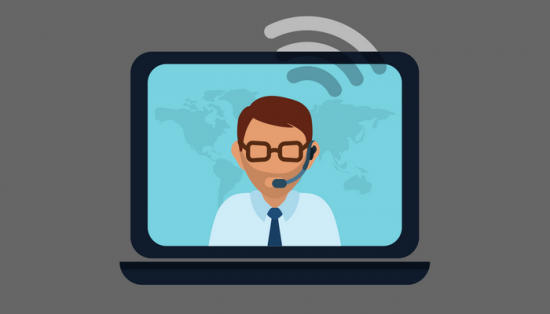
CRM systems are one of the most useful applications for every organization. They enable businesses to store customer data, which can be utilized to build meaningful customer relationships, find new customers and grow revenues. Since CRM data contains such valuable information, it’s extremely tantalizing for hackers who are looking to steal personal information. In 2016 alone, there were 454 data breaches with nearly 12.7 million records being exposed.
A data breach to your CRM can be disastrous for your organization, destroying the trust in your business, tarnishing your brand and even resulting in numerous lawsuits. Here are five ways to secure your CRM data from hackers and exploiters.
1. Choose a trusted CRM Provider
When hackers target your CRM system, they’re most likely to first find out what CRM application you use, and look for any known vulnerabilities that they can exploit right away. So it’s essential to pick a reliable CRM provider. Once you’ve established your business with your CRM system, it can be quite tedious to migrate to a different one later, and train your employees to use it.Research various CRM companies thoroughly before you make a purchase. Start with trusted IT news sites like CNET and IT World that regularly provide unbiased reviews and comparisons of various CRM solutions. Ensure that your CRM provider allows unlimited secure access to your data and adheres to strict data standards laid out in ISO 27001. Check vendor blogs and IT news sites for any past history of data breaches, and find out how they dealt with it and how they’ll prevent it in future. You can easily retrieve this information by searching for company_name + “data breach” or company_name + “security breach” in Google.Make sure that your CRM provider is open and transparent in its communication and is well-known for its security measures. For example, CRM solutions registered in the Cloud Security Alliance can be trusted with your customer data.Every CRM solution provider will have a PDF document or a web page that lays out the security measures and best practices they follow to protect customer data. If you can’t find it on their website, make sure to request them for it.
2. Secure Your Infrastructure
It’s also important to secure the very IT infrastructure that hosts your CRM data. Create multiple layers of security that makes it more difficult for hackers to get in. Start by installing a reputed firewall that will enable you to precisely control data access and permissions. Consider installing a trusted antivirus software to protect your customer data from trojans, worms and viruses. Make sure that your antivirus provides real-time scanning that will help you block intrusion attempts as they happen. The above mentioned antiviruses also provide anti-phishing and anti-malware that will enable your employees to browse the web securely.Update your operating system (OS) regularly to install the latest security updates and patches. This will automatically fix critical security vulnerabilities in your OS. By default, every OS is set to automatically download and install updates. Some users turn it off save bandwidth and data. It’s advisable to leave it on to secure your data.Install disk encryption solutions such as BitLocker, which provides 256-bit AES encryption for your full disk. It is already installed on most Windows Operating Systems and quite easy to use.
3. Train your employees
As technology evolves, it’s likely that your security protocols become outdated. Sometimes, data breaches also occur because employees carelessly pass around data, documents and even user credentials. Conduct a security audit to identify the weak points in your security protocols and fix them. Educate your employees about your security protocols and conduct role-playing workshops to simulate real-life scenarios. This will help them use software, hardware and data the right way. Also, provide them video tutorials, and conduct Q&A sessions.This will give them a hands-on experience about the do’s and don’ts in case of data breaches. Ensure that you regularly test your security protocols. You need to also educate them about safe web browsing so they can avoid external threats. For example, if your employees open emails from unknown sources, they may contain links to malicious websites that install software, browser plugins and add-ons which steal your customer data.Also, train them how to access sensitive information such as corporate documents, customer data and emails on public wi-fi networks which are generally insecure.
4. Use strong passwords
Weak, easy-to-guess passwords make it really easy for hackers to get into your systems. In fact, in 93% of breaches, attackers take less than a minute to compromise the target system.Make sure that you use a strong password comprising of numbers, alphabets and special characters. Since it can be difficult to remember such passwords, teach your employees how to securely store your passwords and retrieve them when needed. Also, add systemic validations to ensure that no weak passwords slip through.Many organizations and even popular platforms (such as GMail, Facebook, Instagram) have started using 2FA, which requires users to provide two pieces of information independently, to access their account. In this case, when you try logging in with your username and password, you’ll be asked to also enter a one-time password that is sent to your mobile. Unless anyone knows this additional password, they can’t break into your account. This provides an extra layer of security.
5. Monitor CRM activity
If your CRM system is compromised, it’s very likely to show an unusual amount of activity. Setup security alerts to get notified about data breaches and unauthorized access. Also, setup real-time dashboards to regularly monitor the security KPIs of your CRM and network. In fact, many of these dashboard solutions provide numerous integrations that allow you to easily track the key security metrics of your IT infrastructure.
Wrapping Up
Just as your customers are important, so is their data. Security breaches can spoil your company’s hard-earned reputation and make it easy for competitors to steal your customers. The above five tips will help you analyze your CRM’s security and improve it further. A combination of multi-layered security system and well-trained employees will allow you to focus on growing your business, without worrying if your business might be the next target for hackers.The opinions expressed in this guest contributor article are solely those of the contributor and do not necessarily reflect those of Cloudbric. For more than 8 years, Sreeram Sreenivasan has worked with various Fortune 500 Companies in areas of Business Growth & Marketing Strategy. He’s the Founder of Ubiq BI, a BI Platform for SMBs & Enterprises. He also runs the Fedingo blog that covers a wide range of marketing topics.
For more than 8 years, Sreeram Sreenivasan has worked with various Fortune 500 Companies in areas of Business Growth & Marketing Strategy. He’s the Founder of Ubiq BI, a BI Platform for SMBs & Enterprises. He also runs the Fedingo blog that covers a wide range of marketing topics.





